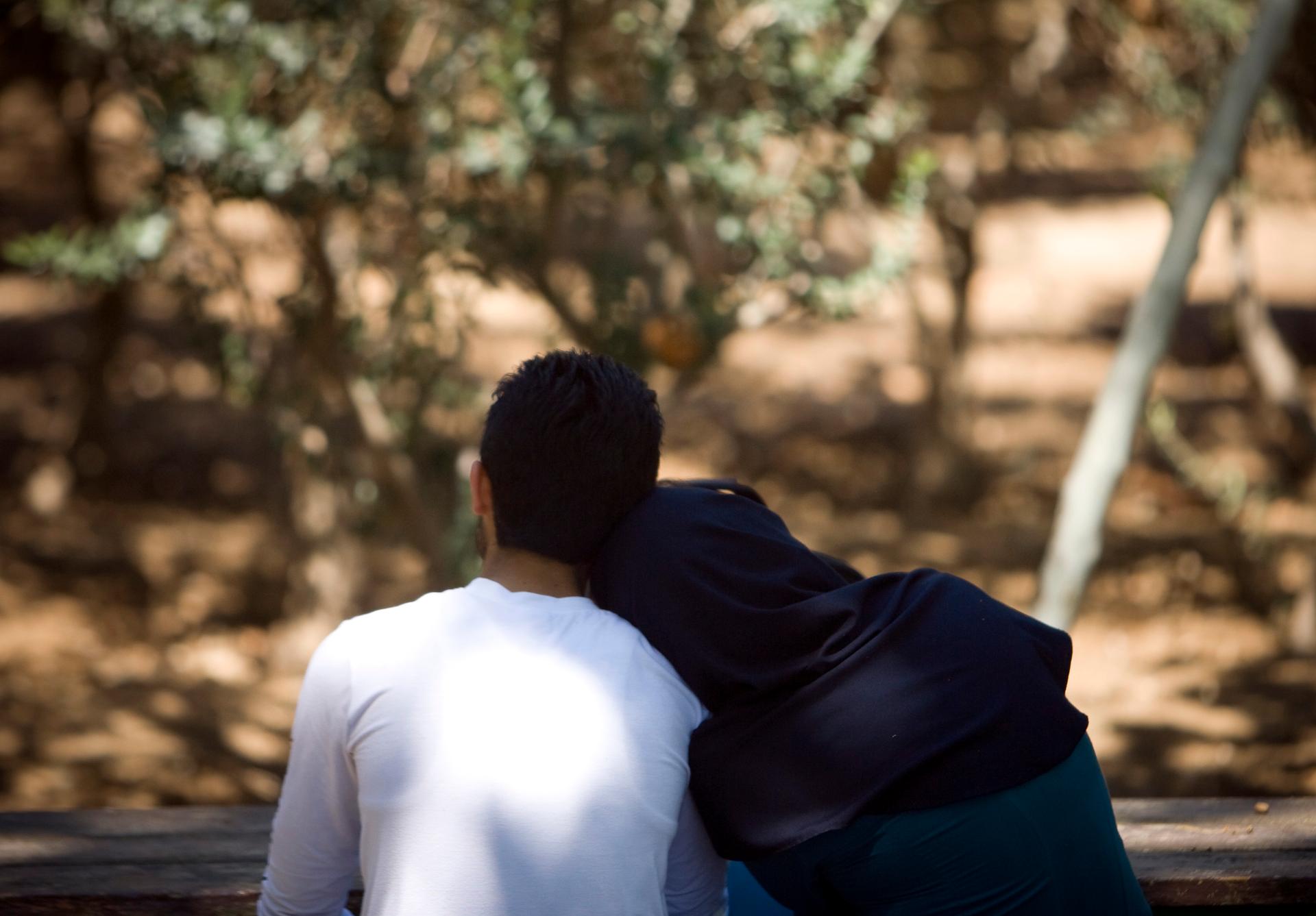An Iranian couple rests in a park in central Tehran.
Iran is a country where, according to Islamic law, men and women who aren't related can't even legally shake hands. Yet many young Iranian couples are opting to living together without tying the knot.
Rana Rahimpour, a reporter for the BBC's Persian-language service, says official statistics are hard to come by. But the trend is on the radar of religious officials.
"The fact that the office of the Supreme Leader has issued a statement and has expressed his concerns about this means that the numbers are growing fast," Rahimpour says.
Cohabitation is also known as a "white marriage" in Iran, and Rahimpour says there are many reasons for its growing popularity. For one, getting married has become so expensive that fewer people can afford to go through with it.
"It's expensive for men because they have to pay 'mehriyeh,' the sum that they agree to pay when they get married in case of a divorce," she explains. The sum is usually so large that men either end up in debt for the rest of their lives or have to go to prison.
Divorce is no easier, especially for women. "It's very difficult to file for divorce," Rahimpour says. "You should either prove in court that your husband is incompetent or you have to prove that he is a drug addict."
Aside from economic incentives, younger Iranians tend to be less conservative than the older generation. "Urban youth are no longer as religious as before or as their parents," Rahimpour says. "They have access to Internet and satellite television and are generally more in touch with the world."
While white marriage is bringing change, "a a large part of the Iranian society is religious and very traditional," Rahimpour says. But with 70 percent of Iran's population under the age of the 30, "change is inevitable — but it will take time."
